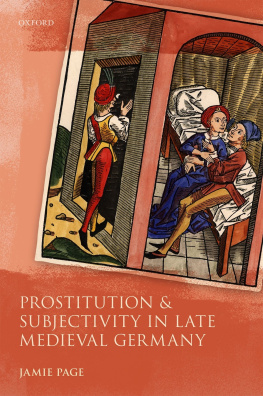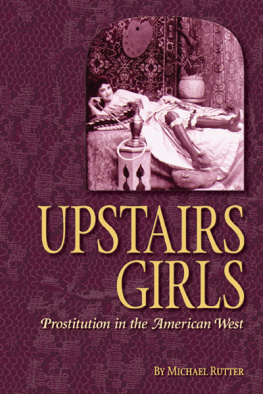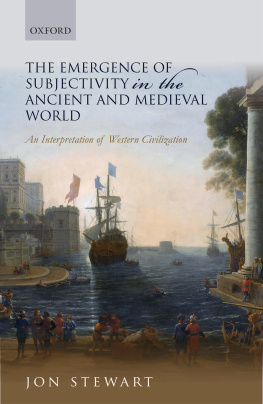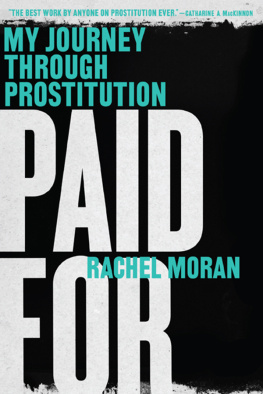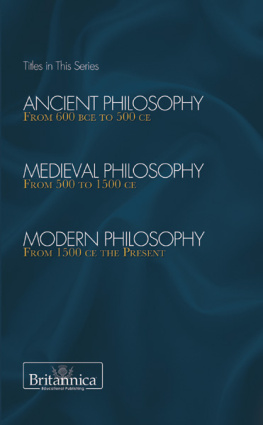Oxford University Press is a department of the University of Oxford. It furthers the Universitys objective of excellence in research, scholarship, and education by publishing worldwide. Oxford is a registered trade mark of Oxford University Press in the UK and in certain other countries
All rights reserved. No part of this publication may be reproduced, stored in a retrieval system, or transmitted, in any form or by any means, without the prior permission in writing of Oxford University Press, or as expressly permitted by law, by licence or under terms agreed with the appropriate reprographics rights organization. Enquiries concerning reproduction outside the scope of the above should be sent to the Rights Department, Oxford University Press, at the address above
You must not circulate this work in any other form and you must impose this same condition on any acquirer
Links to third party websites are provided by Oxford in good faith and for information only. Oxford disclaims any responsibility for the materials contained in any third party website referenced in this work.
Acknowledgements
This book began as a PhD thesis written at the University of St Andrews with generous financial backing from the Arts and Humanities Research Council and the Scouloudi Foundation. I would like to thank Bettina Bildhauer and Frances Andrews, who supervised the project, and have since been ever present with guidance and encouragement. I can only say that acknowledging what their support and friendship means to me exceeds my capacity to find words.
The community of staff and students within the St Andrews Institute of Mediaeval Studies provided a wonderful environment in which to spend ten years of undergraduate and postgraduate study. It is a pleasure to be able to acknowledge the contributions of so many people there to the early stages of this project. Thank you to Kimberley-Joy Knight, Kate Hammond, Laura Tompkins, Justine Trombley, Rob Houghton, Roberta Cimino, Eilidh Harris, Ed Roberts, Trish Stewart, Maxine Esser, Jo Thornborough, Will Eves, Matt McHaffie, Sarah Greer, Christine McGladdery, James Palmer, Tim Greenwood, John Hudson, Rory Cox, Ana del Campo, Justine Firnhaber-Baker, Simon MacLean, Ian Johnson, Chris Jones, Grinne Watson, Malcolm McLeod, and Naomi McLeod. Berenike Walburg is very sadly missed among us, and the field far poorer without her superb scholarship.
Many people have given up their time to read and comment upon drafts of this work at different stages. Others have helped (often far more than they know) by talking over problems and answering queries. Any errors or clumsiness that remain despite their efforts reflect solely on me. Very sincere thanks go to Bridget Heal, Karen Harvey, Sara McDougall, Saskia Limbach, Bronach Kane, Cordelia Beattie, Trish Skinner, Ruth Mazo Karras, Ben Pope, Martin Christ, Ned Schoolman, Susanna Burghartz, Tom Johnson, Frans Camphuijsen, Helmut Puff, Laura Stokes, Monica Green, Christian Liddy, and Nicole Reinhardt. I am also very grateful to Sebastian Twieg for generously sharing his own work on Nrdlingen. I am profoundly appreciative of the efforts of the anonymous reviewers for Oxford University Press, whose care and consideration in providing criticism made a major contribution to the final manuscript. As series editors, Len Scales and Neil Gregor have offered steady guidance and support along the way. To Len in particular I am grateful for mentoring and encouragement, and for his many insights into late medieval Germany. Particular thanks go to John Arnold, who, as external examiner, suggested with characteristic generosity that I should feel free to excise references to his own work from the footnotes when it no longer seemed relevant. I have never felt the need to do so, and it is now a pleasure to acknowledge the intellectual debts I owe to him.
I would also like to acknowledge the contributions of several teachers outwith academia, whose contributions have been far greater than they know: thank you to Paul Brooke, Nick Hammond, Gill Smith, and Ruth Featherby.
Much of the research for this book was carried out in archives and libraries in Germany and Switzerland, where I have benefitted from the generosity of a great many people. For hosting me at the Leopold-Wenger Institut fr Rechtsgeschichte at the Ludwig-Maximilians Universitt Mnchen I am grateful to Jrg Mller, Gisela Drossbach, and Hans-Georg Hermann. At the Eberhard Karls Universitt Tbingen, thanks go to Steffen Patzold, Johanna Jebe, Annette Grabowsky, Uwe Grupp, Christoph Haack, Carlo Pedersoli, Thomas Kohl, and most especially to Ellen Widder, for friendship, hospitality, and much good advice. For sharing her brilliant work on law and crime in medieval Germany and Switzerland, for many conversations on Zurich and Welti Oechen, and for friendship and encouragement, warm thanks to Susanne Pohl-Zucker.
The writing of this book has benefitted significantly from media and theatre collaborations which have allowed me to connect with audiences outside academia. Thank you therefore to Hans von Kalckreuth, Nico Tavalei, and Ingo Dubner of Bilderfest GmbH, and to Barbara Lackermeier and Timo Meister, as well as the Verein Alt Nrdlingen and to the cast and crew behind the production of Els: Die Frauenhausakte von Nrdlingen, whose hard work and brilliant performances brought Elss life to the stage.
A number of archivists and librarians have provided indispensable assistance during the research process. In Augsburg, I am grateful to Kerstin Lengger for providing access to the collections in the midst of complex restoration efforts, in Zurich to Karin Huser, and in Nrdlingen to Wilfried Sponsel. It is no exaggeration at all to say that without his generosity and support at a very early stage, this project would simply never have got off the ground. Friends and family have supported time spent in Germany and Switzerland that made archival visits possible. Others have provided quiet times for writing. Thank you to Terry and Gabby Davidson, to Elke and Christian Boelcke, to my parents in law Keith and Nicola Johnson, and most especially to Jamie, Kirsten, Nicholas, and Clarissa Wilkie, who have given so much to me and to this book, from Schloss to Schluss.
My family has been the foundation of anything good I have managed to achieve. Their love, encouragement, and patience have sustained me throughout the long process of researching and writing this book. Thank you to my parents, Michael and Judith Page, Harriet and Stuart Tooley, Alice and Duncan Clark, John Morrison, and to James Morrison, for suggesting ways of seeing.
Toria Johnsons contributions to this and to so much else are difficult to find words for, though long shared drams of the soul have played their part. This is all for you and Will.

